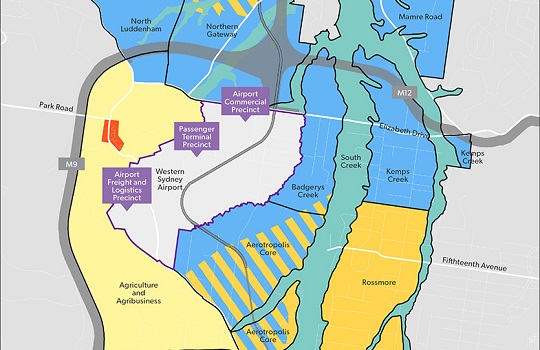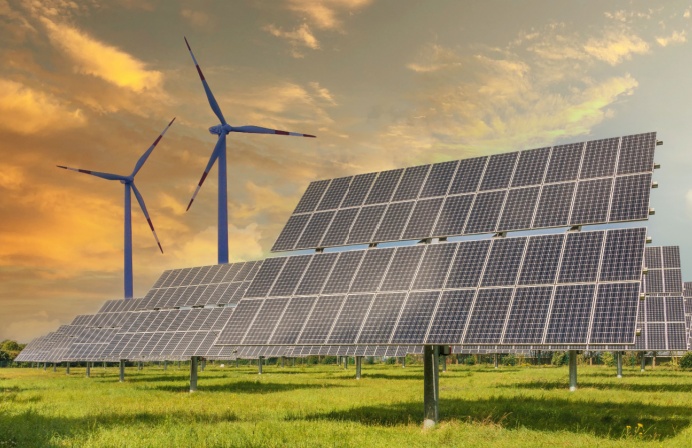
Western Sydney is set to play host to a new space research and development hub, with the NSW Government securing a partnership deal with British defence contractor BAE Systems to construct the new “high-tech” facility within the Aerotropolis precinct.
Launched as a joint initiative between four NSW universities and the state government, the planned R&D facility will form part of an advanced manufacturing precinct within the Aerotropolis – a major greenfield project to provide supporting infrastructure for Sydney’s long-anticipated ‘second airport’ at Badgerys Creek.
Securing the deal, Premier Berejiklian signed a Memorandum of Understanding at BAE’s London headquarters as part of a wider trade mission to the UK and Germany.
It is hoped the partnership will nurture the next generation of scientists, engineers, and mathematicians, “[creating] high tech jobs we need to keep NSW as the number one jobs market in the nation,” the Premier’s office said in a statement.
The Aerotropolis is expected to provide up to 200,000 new jobs for Western Sydney, “establishing a new high-skill jobs hub across aerospace and defence, manufacturing, healthcare, freight and logistics, agribusiness, education, and research industries,” the Government said.
The new R&D facility will be located “within a university” being co-developed by the University of Newcastle, the University of NSW, and the University of Wollongong – the ‘NUW Alliance’ – in partnership with Western Sydney University and the NSW Government.
As part of an extended trade mission to Europe, the Premier ventured to the €600 million ‘Siemensstadt 2.0’ or Siemens City 2.0 innovation precinct in Berlin, revealing the Government is in talks with German manufacturing giant Siemens to secure an MOU to bring technical expertise on ‘smart cities’ and vocational training to the Aerotropolis.
The Berejiklian Government acknowledged Germany’s universally respected Vocational Education and Training (VET) scheme, which it said has been “especially effective at responding to changes in technology and the employment needs of business, providing a reliable source of high-skilled labour for local companies and supporting the global competitiveness of small to medium enterprises”.
Siemens is a major investor in VET, training around 8000 apprentices and students in Germany each year.
Australia all in on space race
Meanwhile, the Federal Government’s Space Agency has announced it has signed a Statement of Strategic Intent and Cooperation with the ASX-listed Speedcast, among the world’s leading satellite-based remote communications and IT service providers.
Speedcast said the deal will open its supply chain to collaborate with local industry to explore the possibilities around transforming and growing a globally respected Australian space industry. The company said it would support the agency’s goal of tripling the size of Australia’s space sector, creating 20,000 new jobs by 2030.
“Speedcast is committed to developing the next generation of space innovators,” chief executive Pierre-Jean Beylier said. “This ground-breaking space initiative builds on our long history of providing connectivity services to emerging markets and will advance global communications while driving economic growth opportunities in new regions.”





